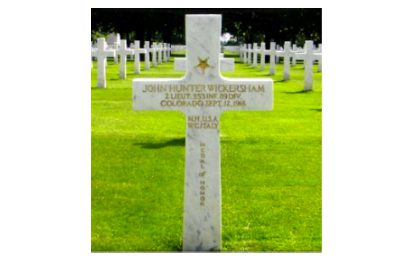As June 6 approaches, much focus is naturally on the invasion of Normandy and the American contribution to the end of WW II. At this time of year, though, my mind turns to WW I, and my visits to the battlefields in France and Belgium. I think it’s critically important that as we recall WW II, we reflect on its origins.
We do less of that in the US because we weren’t as affected by the mass casualties of WW I as Europe, though we were certainly impacted by its deep ravages. I would argue that the entire 20th century — the bloodiest in human history, as historian Niall Ferguson documents in The War of the World — was determined by the world’s first truly global conflict.
Following WW I there was a power vacuum: four major empires had fallen; one, Great Britain, was permanently crippled. A new world order would have to be created.
Weak and unstable nation-states were created (think Hungary, think Iraq). Unharnessed advancements in technology and science sprang to life, causing mass death. Mass casualties erased humanity. Extremist ideologies arose, appealing to civilians who sought order above all else. It was a perfect storm that bore Nazism and Stalinism and the unceasing Middle East conflicts. Weak states in the Third World bolstered the Cold War, and chaos in the Middle East reigns until today.
To a large degree, WW I happened spontaneously; it was a combustion no one planned for. A century leader, we’re still dealing with the fallout.
Shana Goldberg may be reached at [email protected]
Copyright © 2018 by the Intermountain Jewish News












